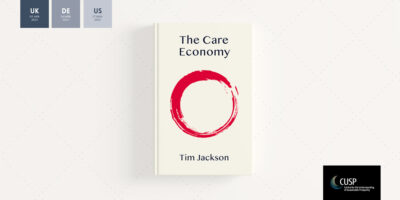Macroeconomic, sectoral and financial dynamics in energy transitions: A stock-flow consistent, input-output approach
Journal Paper by Andrew Jackson and Tim Jackson
Ecological Economics, Vol 230 | April 2025

Summary
This paper develops a stock-flow consistent, input-output (SFC-IO) model that is able to simulate a number of the risks and opportunities associated with different types of transitions to net zero. In particular, the model is able to capture transition related impacts stemming from changes in: i) green investment; ii) energy return on energy invested (EROI); and iii) financial transition risks. We use this model to simulate a number of different types of energy transitions (i.e. orderly versus disorderly, anticipated versus unanticipated) to better understand the potential links and feedback effects between these different transition features and how they might generate non-linear dynamics along the transition pathway.
Novel or semi novel aspects of the model include: i) multiple firm sectors and goods types; ii) the integration of a dynamic input-output model into the SFC model; iii) the use of an almost ideal demand system; iv) firms that produce distinct capital vintages which have defined lifespans and endogenously determined levels of labour productivity and material goods inputs; v) endogenous markups which are set to generate a target profit rate on each individual capital vintage (and cover interest payments, retained earnings and loan repayments); vi) the tracking of individual loans (which are linked to distinct capital vintages), loan repayments, and loan defaults; vii) the exit and bankruptcy of the fossil fuel sector during the transition process.
The paper is available in open access format via the Science Direct website. If you have difficulties accessing the paper, please get in touch: info@cusp.ac.uk.
Citation
Jackson A and T Jackson 2025. Macroeconomic, sectoral and financial dynamics in energy transitions: A stock-flow consistent, input-output approach. In: Ecological Economics, Volume 230. DOI: https://doi.org/10.1016/j.ecolecon.2024.108507.



